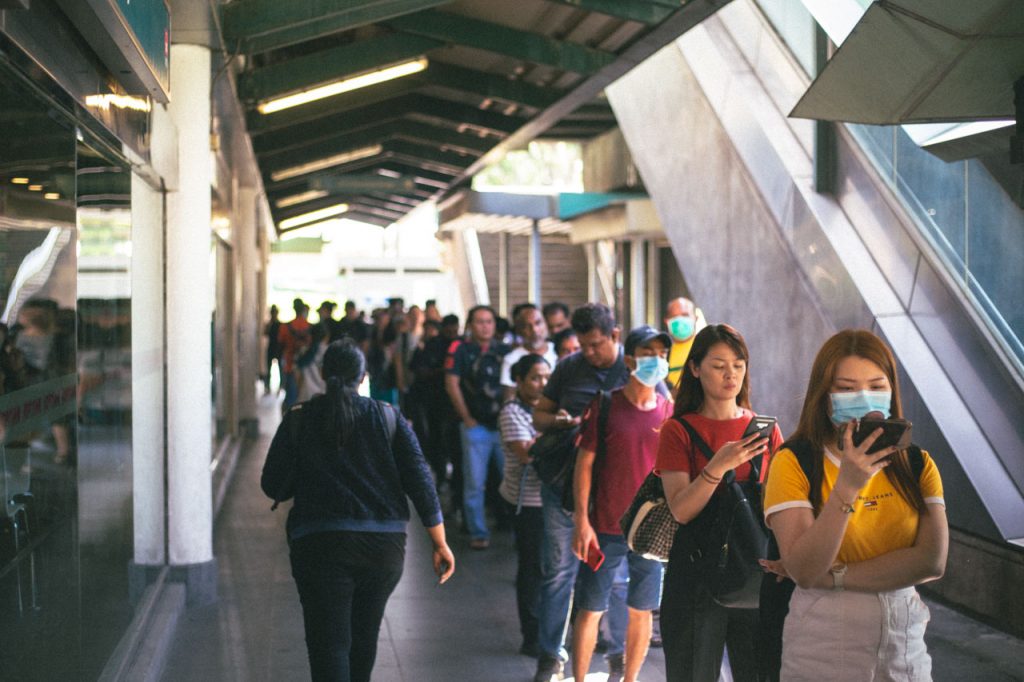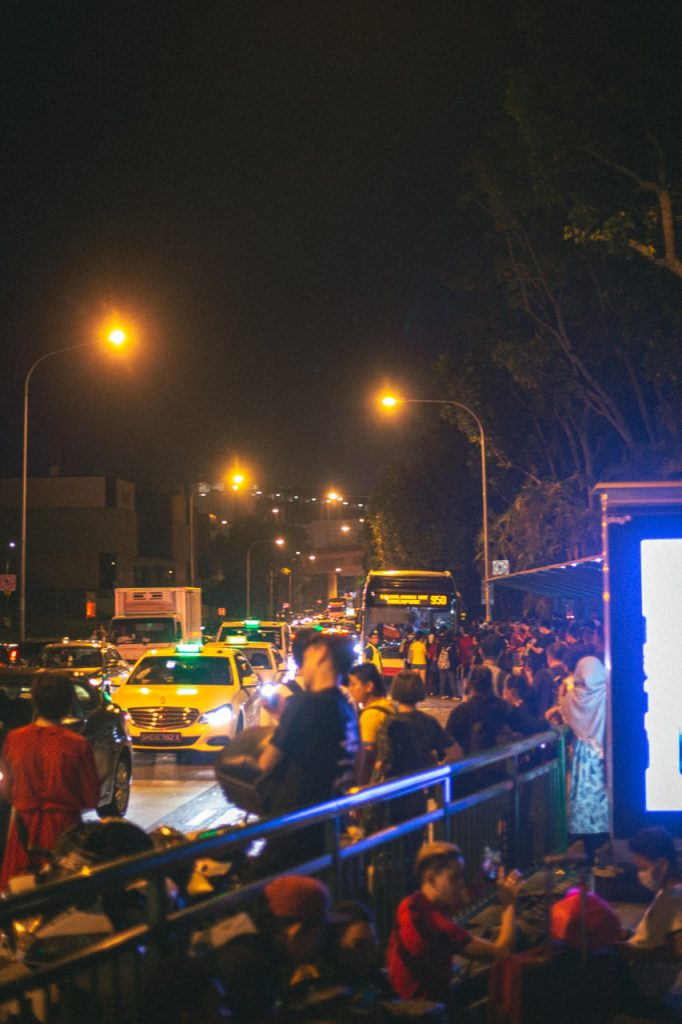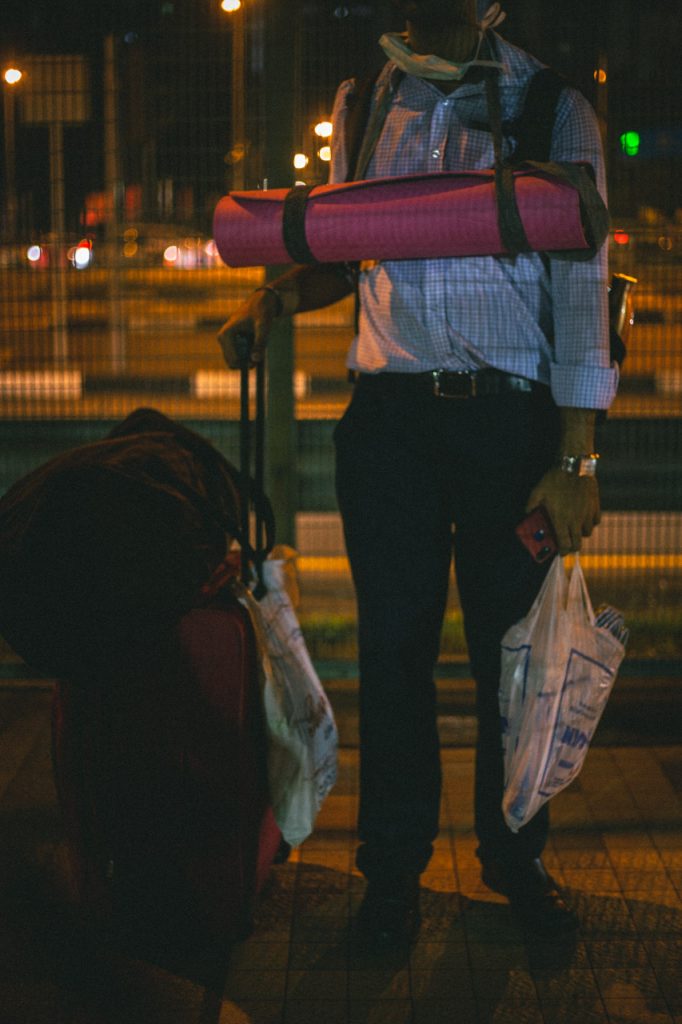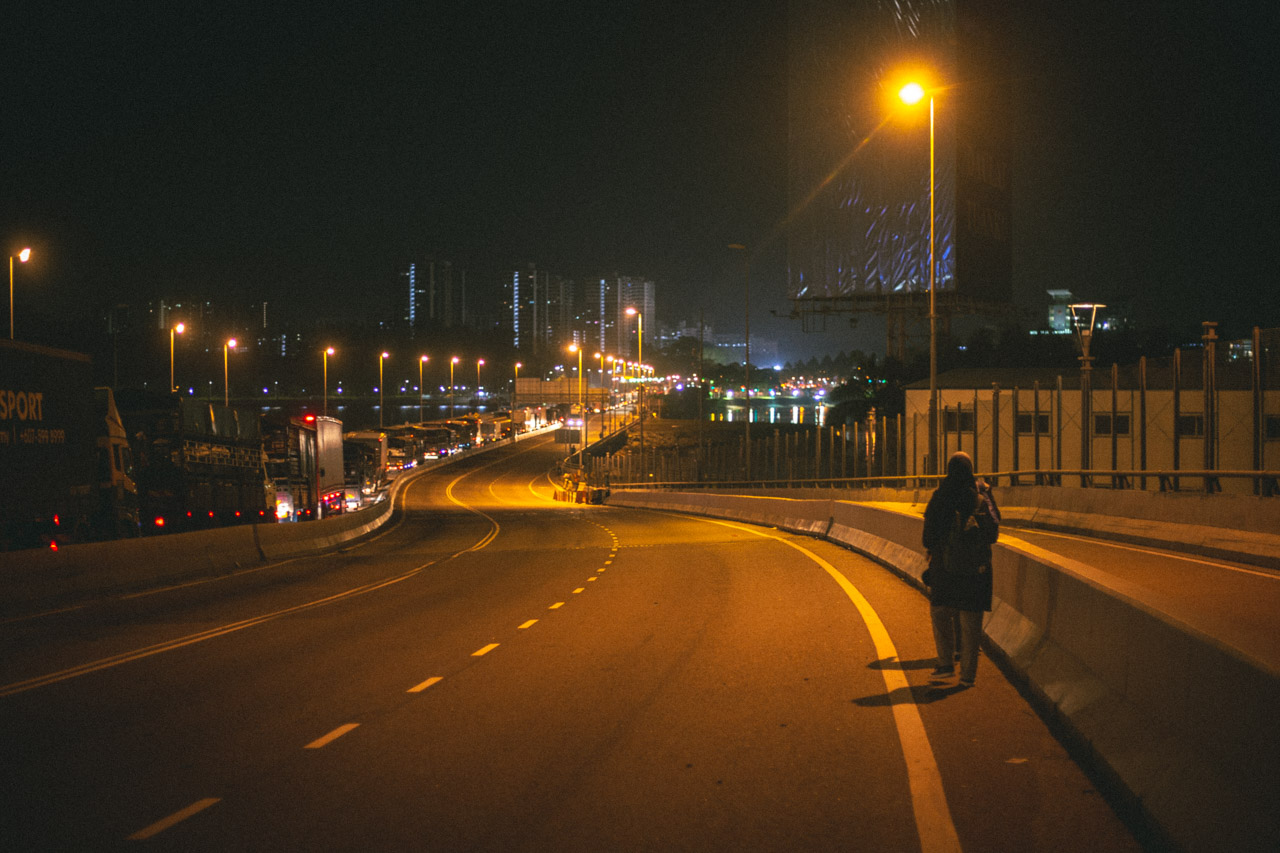Renga, a 41-year old Malaysian who works in F&B in Singapore, is a burly man with a serious demeanour. I often see him on shift at the café I go to, when I’m hunkering down to write. A man of few words, he is nonetheless, impeccably polite. So when we sat down on Wednesday afternoon to chat about the Malaysia lockdown, I didn’t expect to see another side of him.
“I have four kids at home in Johor Bahru and my youngest is four years old. I can’t see her …” He trails off and then, tears in his eyes, he excuses himself and leaves the table.
Make no mistake, we are not in a war zone. This is not the border between the Gaza Strip and Israel. But with nearly 200,000 cases of Covid-19 infections worldwide, and close to 8,000 deaths, it does feel like we are at war.
Malaysia has reported 673 infected cases and two deaths. This crisis arrived fast on the heels of the recent change in government, which left its citizens reeling. To combat the virus in the country, on the evening of March 16th, Malaysian Prime Minister Muhyiddin Yassin announced the implementation of a movement control order and effectively closed the border. Malaysians who want to travel between states within the country will also have to obtain a document from the police, permitting them to do so.

So how are they handling it? The RICE team headed down to the Causeway on the night of the 17th, hours before lockdown, to capture the mood on the ground. They expected panic and chaos. What they encountered instead was stoicism and acceptance—Malaysians, by the thousands, were simply making a choice and getting on with it.
Renga picked Singapore.
“When the PM announced the lockdown I wasn’t surprised. I was sure it would happen because of the way the cases increased so suddenly. So I spoke to my manager and mentally prepared myself. I came for my Tuesday shift with my bags packed,” Renga said.
To characterise this like it’s a toss of a coin, or a matter of personal preference, would be grossly insensitive. For tens of thousands of Malaysians (if not more), clearing annual leave in the first quarter of the year, or going on unpaid leave, is simply not an option.
“I am the sole breadwinner of my family,” he tells me. “I like my job, but I also need it. Without it I cannot support my family.”
He feels luckier than most because his workplace in Singapore will provide accommodation and meals for the duration of the lockdown. He looks lost without his family, and tells me they’ll manage by video calling everyday.
Then there were the hours leading up to the lockdown itself. We’ve all seen it—photos of the Causeway with crushing crowds of people on motorbikes or vehicles, late into the night of the 17th.

Kartigesan could have opted to clear leave and stayed in Malaysia. But with staff shortage at his restaurant, he opted to stay. “It isn’t a time to be selfish,” he says.
His response surprises me, because he exposed himself to the risk of getting the virus, to ensure that operations at his workplace remain unaffected.
Many chose to avoid the crowds and told me they’ll buy some clothes here to get through the two weeks.
While confusion reigns, families and familial bonds have been affected—even if only for two weeks—by the lockdown.
“I work in F&B and my wife is a staff member at Gleneagles Hospital. So we both decided to stay here. But I’m at my work quarters and she’s staying at accommodation provided by the hospital. We’re both here. But we’re not staying together. It’s really strange. We’re waiting for our off day to see each other,” Suresh, 34, says with a resigned smile.
His entire family scrambled back to Perak before the lockdown, and he worries that if something happens to his grandmother, who is over 80, he will not see her. The anxiety because of this separation is palpable.

“What happens after the 31st? Do we get to go home and commute to work? Will we be put under quarantine or have our movements restricted when we go back to Malaysia? It’s all unclear,” he asks.
From security, to healthcare, waste management, supervisory roles in factories, logistics and transport, Malaysians play a vital role in Singapore’s economy. About 18 percent of the total labour force of 2.3 million people are from Malaysia.
That number may seem insignificant. But it takes a lockdown to feel the impact of throwing a spanner in the works of Singapore’s well-oiled labour force machine.
Following the announcement of the lockdown, Singapore’s High Commission in Malaysia released a FAQ on the Movement Control Order in Malaysia. The Straits Times story on this is titled “FAQ on how Malaysia’s lockdown will affect Singaporeans.”
While factually accurate, it should prompt a little existential soul searching among Singaporeans. We should also be asking ourselves how the lockdown affects us here, in Singapore, where we depend—sometimes unknowingly—on Malaysians to keep things going. In other words, our psychological defense in Singapore depends on over 400,000 Malaysians who have made a decision under duress. They had all of 24 hours to consider how it will impact both them, and us.
So more of us should stop to consider how the lockdown affects Malaysians emotionally. For now, they’re demonstrating what resilience and grace under pressure looks like, and they’re still doing their jobs.
Suresh sums it up poignantly: “We have a commitment to our jobs and we can’t just leave for two weeks. So we stayed. The real fear now is that the lockdown will extend and then what happens? We have our jobs. But what about our families?”
Kartigesan agrees. “Yes, we’ve come. We made the choice. What happens next? That’s the question that worries us.”






